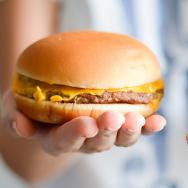During her training as a clinical psychologist, Prof. Andrea King was taught the standard theory about alcoholism: Individuals who drink to excess develop tolerance to the substance, requiring them to drink more over time to achieve pleasurable feelings. This spiral has long been thought to lead to addiction.
But when she started working with patients with alcohol use disorder, King noticed that—contrary to what she’d been taught by prevailing research and clinical lore—addicted patients didn’t seem to have a tolerance to the pleasurable effects of alcohol, only to the sedating effects. “Their response to the positive effects of alcohol wasn’t diminished at all,” she said. “In fact, when we would pick apart what occurred during an alcohol binge, their response often appeared to be very rapid, and the enjoyable effects of alcohol seemed to escalate quickly.”
This led King, a professor of psychiatry and behavioral neuroscience at the University of Chicago Medicine, to question the existing theories of addiction and to conduct the first-ever study of how an individual’s acute response to alcohol—in this case, in the same individuals examined repeatedly over a decade—could predict their risk for developing the condition.
In a new study, published on Jan. 5 in the American Journal of Psychiatry, King and her team tested 190 non-alcoholic young adults in a laboratory-based binge-drinking scenario at three regular intervals over the course of 10 years.
The study showed that those individuals who reported the highest pleasurable and rewarding effects of alcohol at the start of the trial were more likely to develop an alcohol use disorder (the current clinical term for alcoholism).
Moreover, when retested on their responses 10 years later, those who became alcoholics had the highest levels of alcohol stimulation, liking and wanting—and these were heightened compared to their baseline with no signs of tolerance to these pleasurable effects.
These results indicate that individuals developing an alcohol use disorder are more likely to be sensitized to the effects of alcohol—that is, they experience a stronger positive response—rather than habituated to the substance with a lower level of response. In these same individuals, alcohol was less sedating for them from the beginning and this did not change over time.
“Prior longitudinal studies have looked at young drinkers’ response to alcohol and focused primarily on the fatiguing and impairing effects of alcohol,” said King. “The thinking that alcoholics do not like the effects of alcohol over time is based on ad-hoc reports of patients entering treatment. Only by testing the same people over a substantial amount of time to see if alcohol responses change over time were we able to observe this elevated response to alcohol compared with placebo, and in participants who did not know the contents of the drinks, so expectancy effects were minimized.”
The study showed that higher sensitivity to the euphoric and rewarding effects of alcohol can predict who will go on to have an alcohol use disorder as they progress through their 20s and 30s.
“These pleasurable alcohol effects grow in intensity over time, and do not dissipate, in people progressing in excessive drinking,” said King. “This tells us that having a higher sensitivity to the rewarding effects of alcohol in the brain puts such individuals at higher risk for developing addiction.”
“It all fits a picture of persistent pleasure-seeking that increases the likelihood of habitual excessive drinking over time,” she said. “Alcoholics were thought to need to drink more to finally get their desired effect when they drink, but these well-controlled data do not support that contention. They get the desirable alcohol effect early in the drinking bout and that seems to fuel wanting more alcohol.”
While it may seem relatively intuitive that individuals who experience alcohol’s pleasurable effects most intensely are at the greatest risk for developing drinking problems, King’s findings run counter to current prominent addiction theories.
The study is the culmination of over 10 years of effort from the research team, who, thanks to their efforts to build strong and lasting relationships with their participants, followed nearly all of the 190 participants over the course of the decade. The participants were regular light or heavy social drinkers in their mid-20s at the start of the trial between 2004 and 2006. They were brought back for repeated testing of alcohol responses in the laboratory five and 10 years later as they approached middle adulthood. In between testing periods, participants were interviewed at near-annual intervals to track their drinking patterns and symptoms of alcohol use disorder over time.
King hopes that these results can help improve our understanding of how some individuals have more vulnerability to developing alcohol use disorder, while others remain social drinkers over their lifespan. She also points out that the results can help to develop better treatments for alcohol use disorders and inform earlier interventions for individuals who may be at high risk for developing an addiction.
“I’m already using this information to inform how I talk about addiction with my therapy clients,” King said. “It can be frustrating for them to see other people who can have a couple drinks and just stop there. They can’t understand why they repeatedly seem unable to do that, too, and I tell them, it may be because your brain responds differently to alcohol that makes it harder to stop drinking once you start. Knowing that information can empower a person to make different decisions.”
Based on this research, King sees the potential for a sort of “personalized medicine” approach for treating alcohol use disorders, describing how sharing an individual’s “thumbprint” response to alcohol can make a difference in how they think about their consumption.
“My colleagues and I conducted a small study several years ago where we had young adult risky drinkers undergo a similar blinded alcohol challenge in the laboratory. One week later, we gave them feedback on how they responded to alcohol and how enhanced rewarding effects could put them at risk for developing an alcohol use disorder,” she said. “After six months, the participants who got that feedback showed lower rates of binge drinking than those who got standard feedback on why heavy drinking is harmful.
“This could be an opportunity for early intervention, comparable to how someone may get their cholesterol tested and then may be more motivated to change their diet, exercise more or start a medication to rein it in. Similarly, knowing one’s acute response to alcohol and how it may indicate a person’s future risk for drinking problems, one may decide to change their drinking on their own or seek help to avoid the progression to addiction.”
Citation: “Subjective Responses to Alcohol in the Development and Maintenance of Alcohol Use Disorder.” King et al., American Journal of Psychiatry, Jan. 5, 2021. DOI: 10.1176/appi.ajp.2020.20030247
Funding: National Institute on Alcohol Abuse and Alcoholism, National Institute on Drug Abuse

